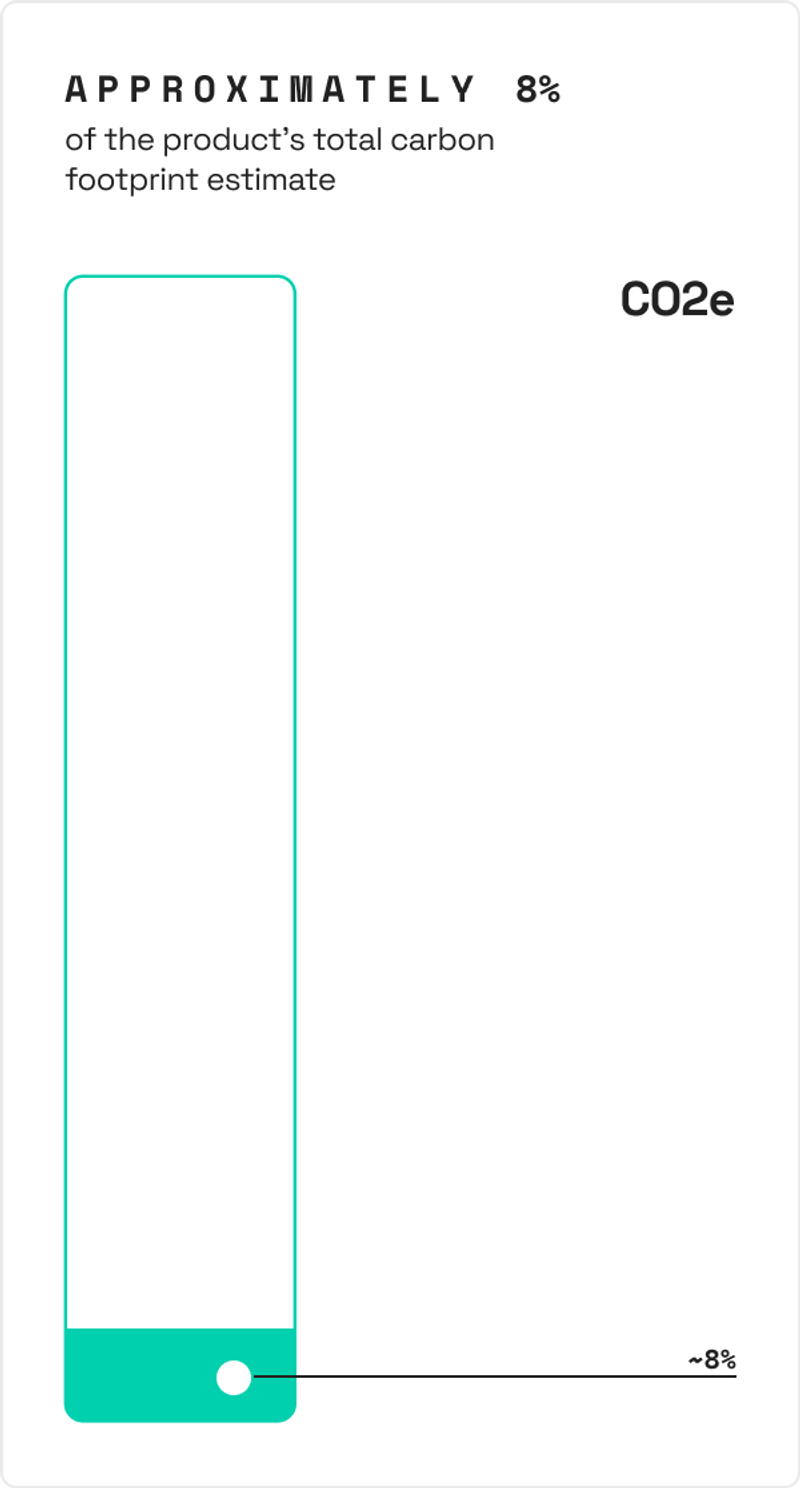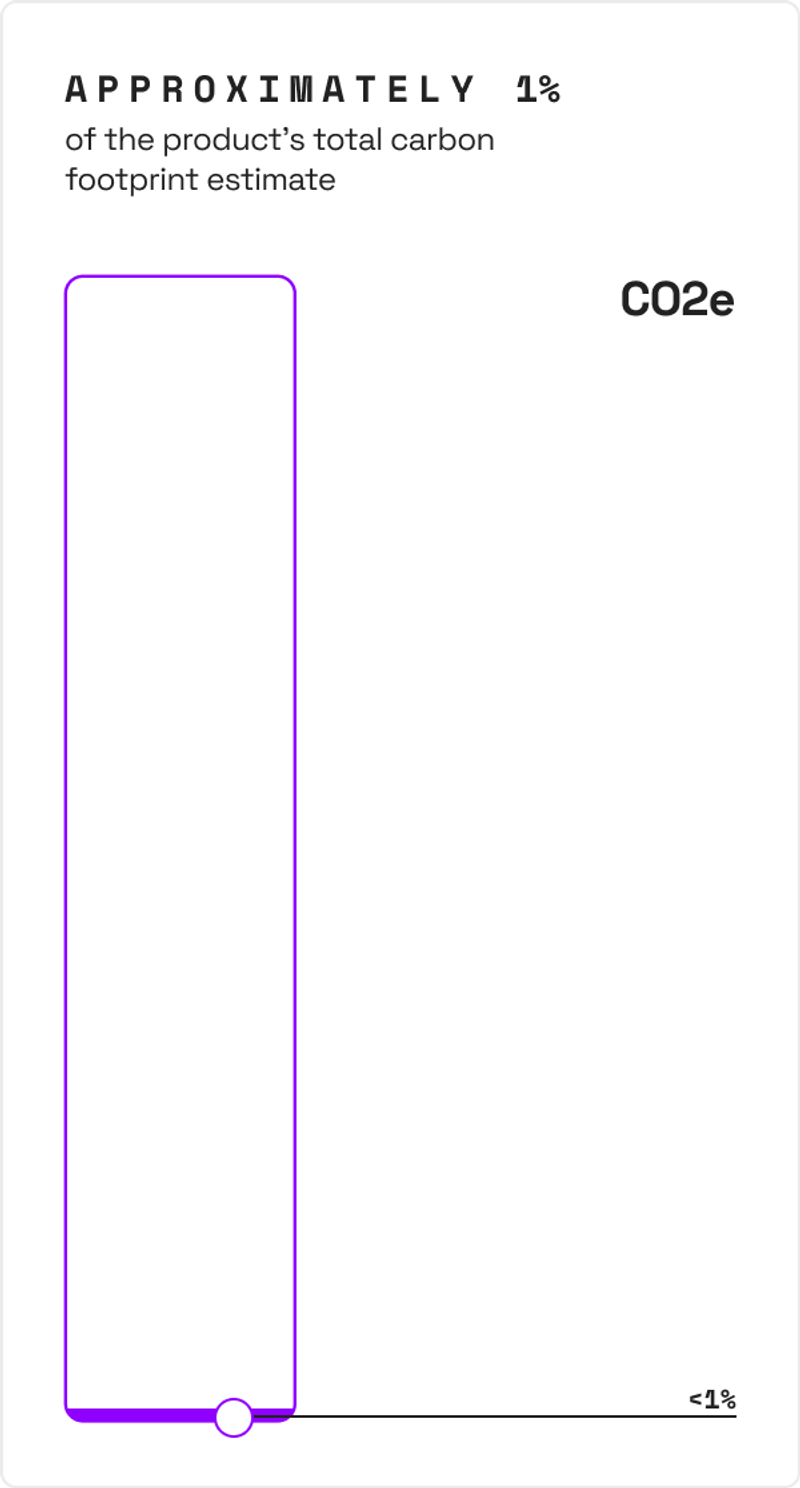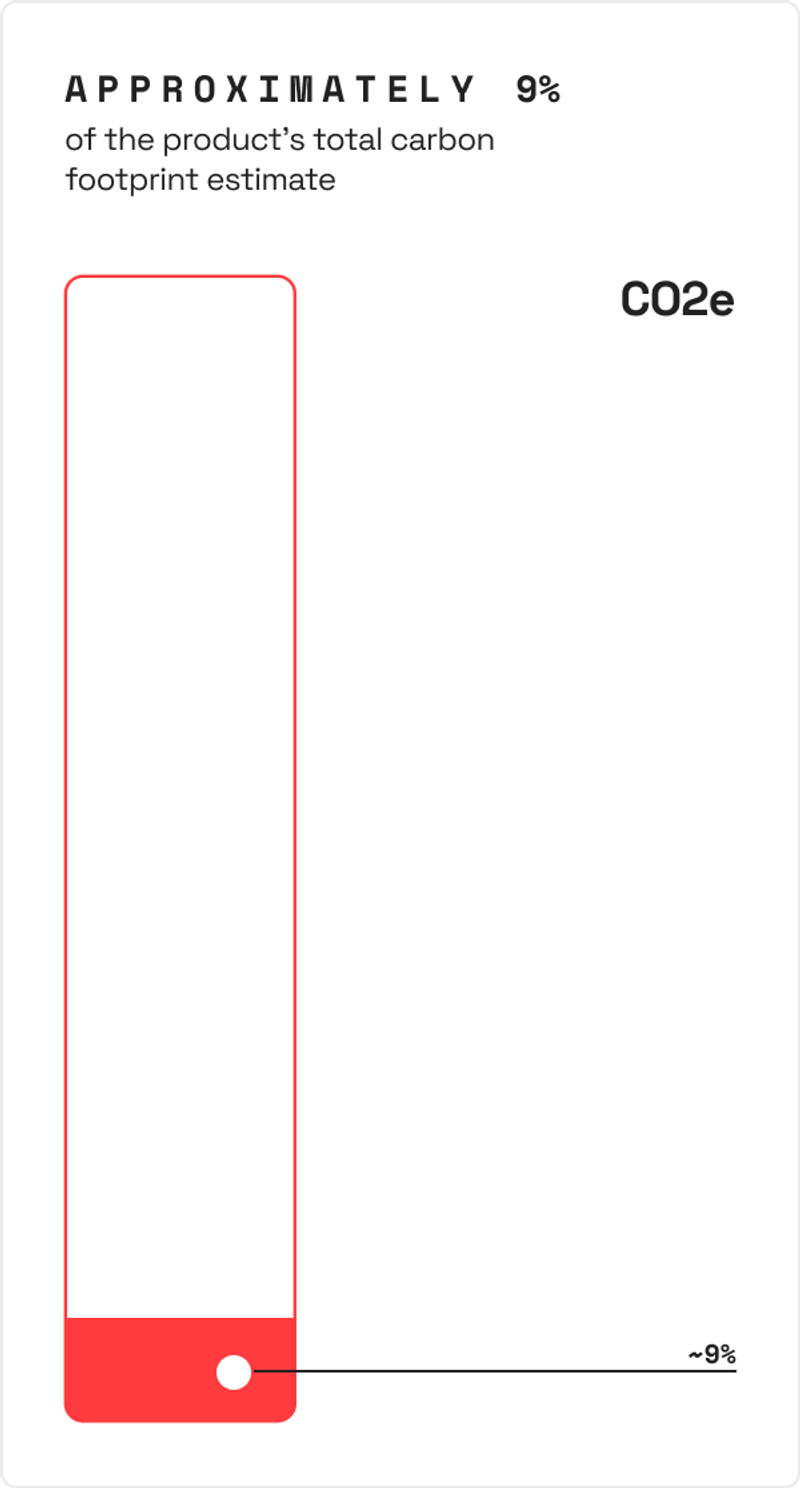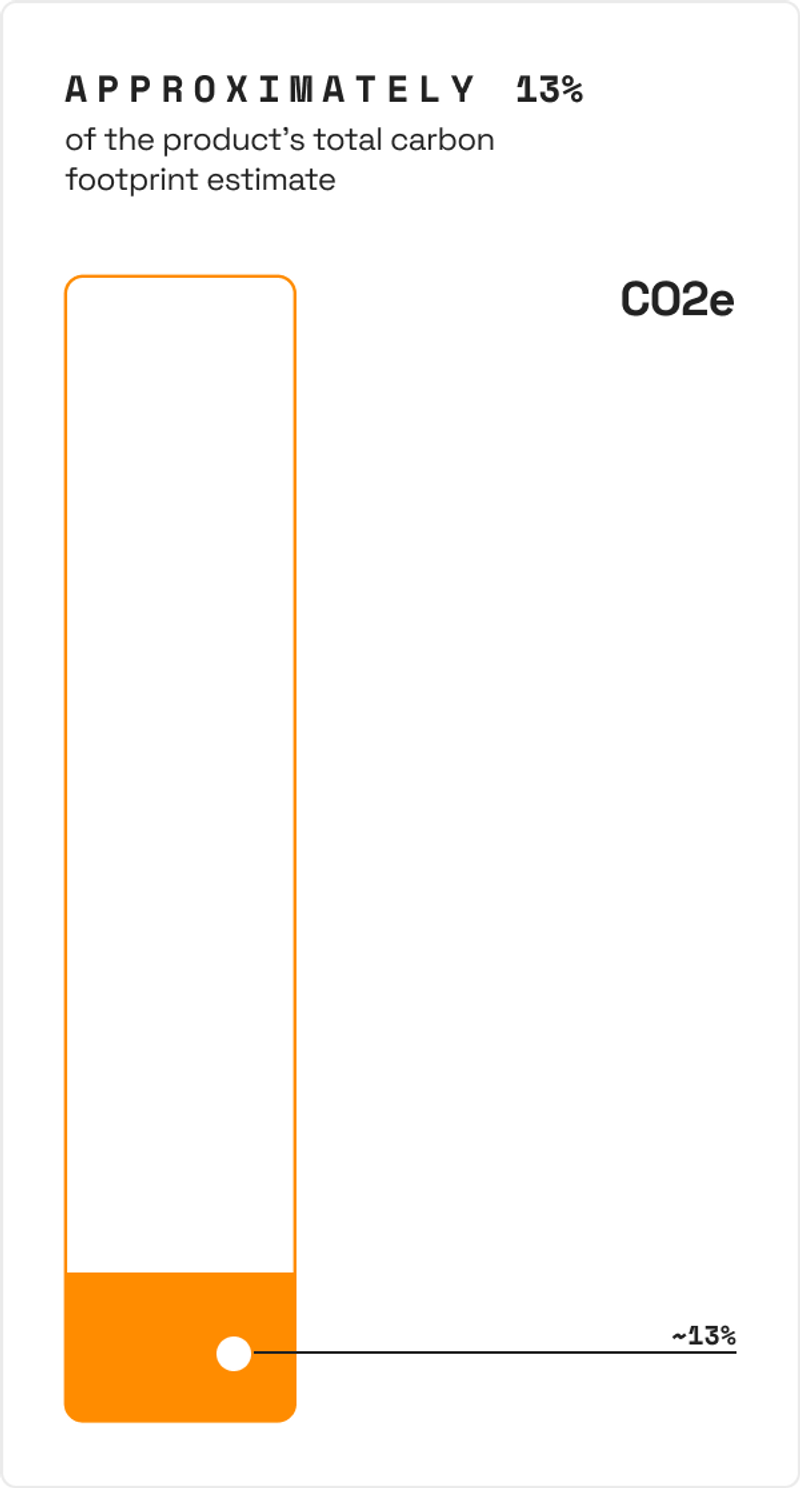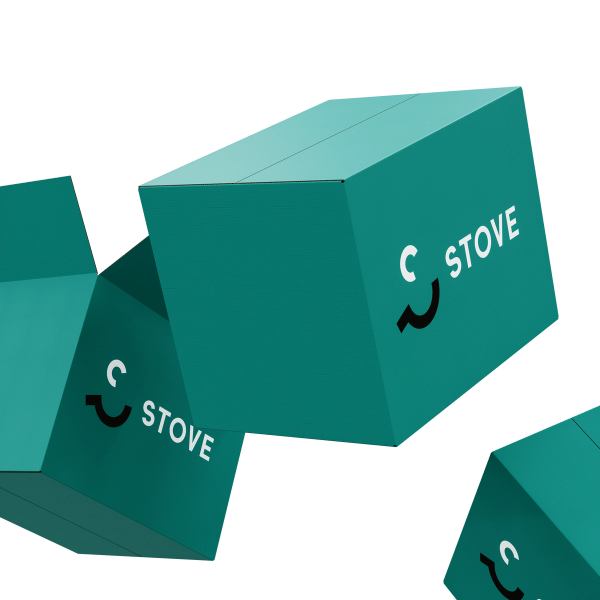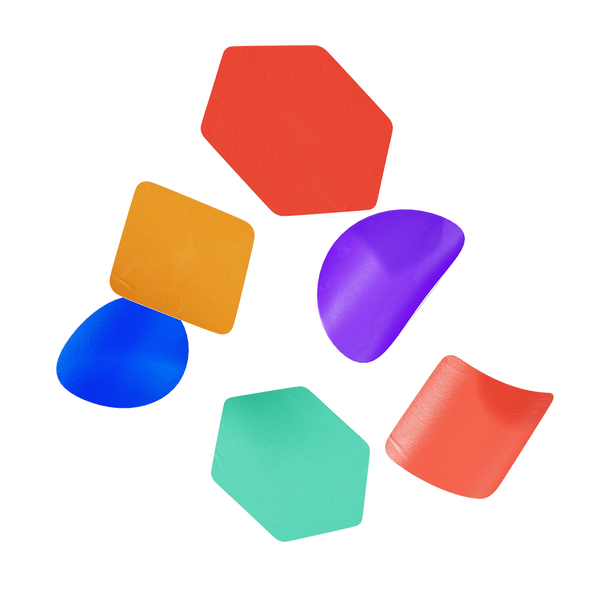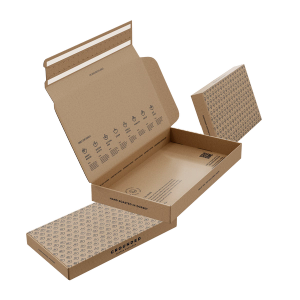Plastic-free
Free UK delivery
100% recyclable
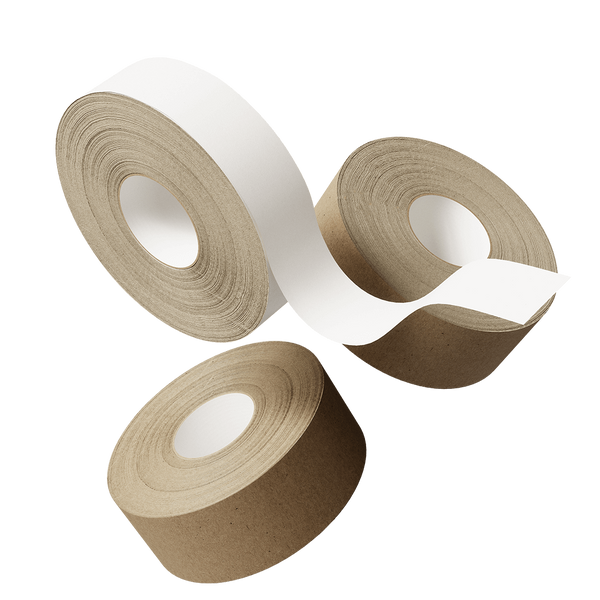
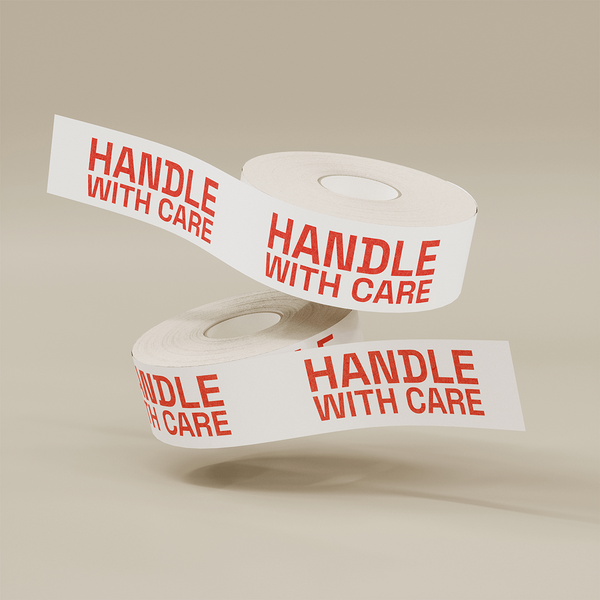
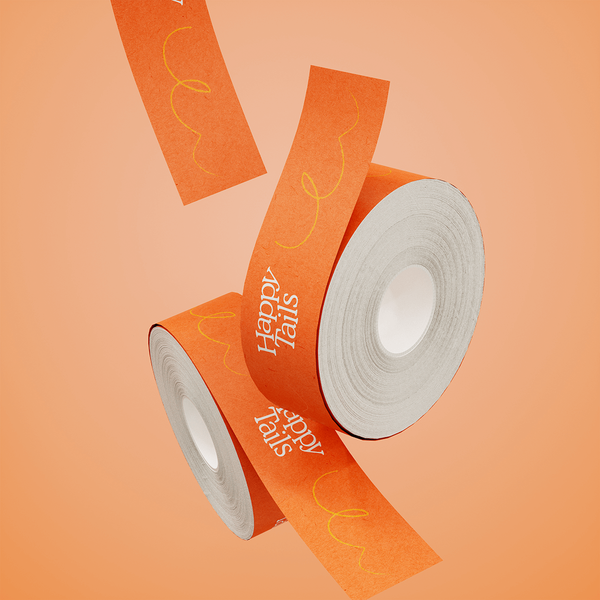
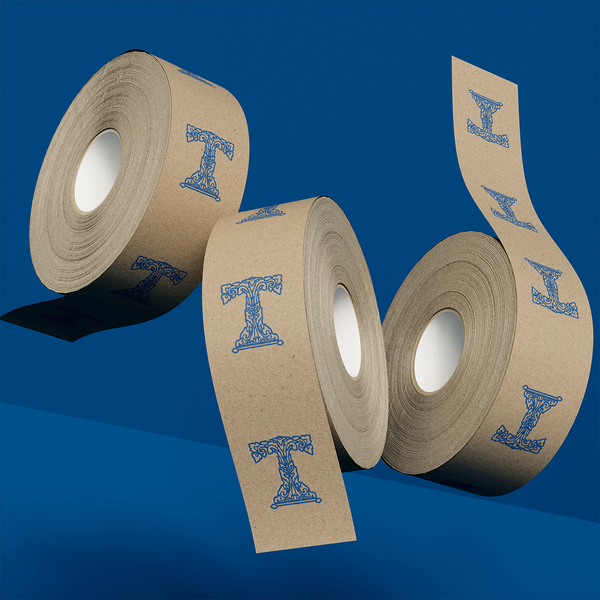
Gummed Tape
Minimum order quantity: 144
Gummed tape is plastic-free and roadside recyclable, making it a more sustainable way to seal any paper-based package. Choose from two widths and two weights, and customise to complete a branded parcel.
- Plastic-free
- Roadside recyclable
- 3 colour printing
- Available in 48mm and 72mm
- Available in 70gsm and 90gsm
Have questions? Contact us
Key features
Carbon footprint
See how the carbon footprint of Sourceful’s gummed tape compares to a benchmark product.
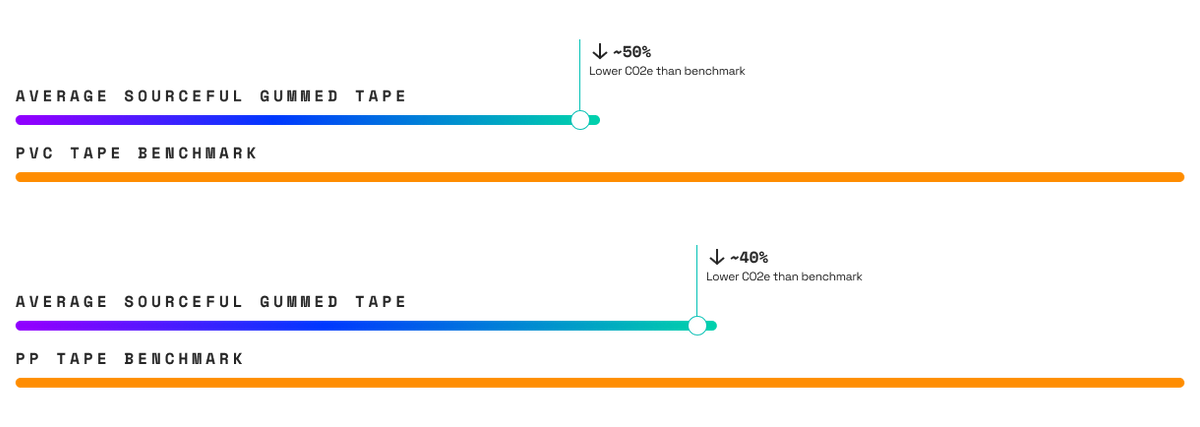
Reduce your carbon footprint by up to 50%
-50% CO2e
Switching base material and adhesive from a typical PVC (Polyvinyl chloride) tape could reduce your carbon footprint by up to 50%.
-40% CO2e
Switching base material and adhesive from a typical BOPP (Biaxially Oriented PolyPropylene) tape could reduce your carbon footprint by up to 40%.
Specification
Understand your entire supply chain


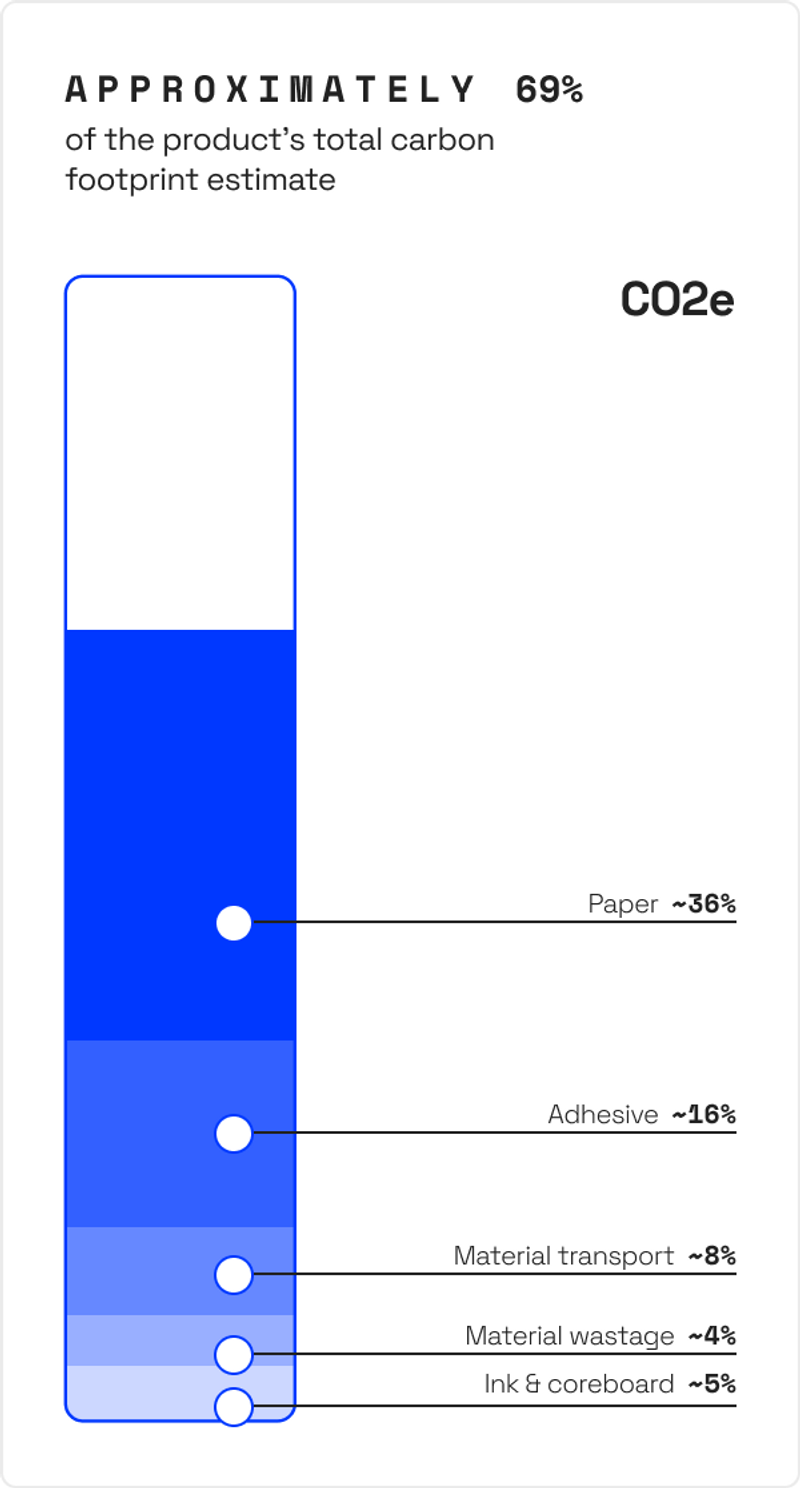
- Bk
Brown kraft paper
Unbleached and uncoated paper made from virgin pulp. Brown kraft paper is the most sustainable material for this gummed tape. Ideal for simple, bold designs and after use, it’s 100% recyclable. Bright colours will appear more muted on brown kraft tape. - Wk
White kraft paper
Bleached paper made from virgin pulp. White kraft paper has a higher carbon footprint than brown kraft paper but colours appear much brighter. - 70
70gsm
A durable, standard weight for gummed tape. 70gsm has a smaller carbon footprint than 90gsm as less material is used. - 90
90gsm
90gsm is thicker and stronger than 70gsm but more material is needed to produce it. This increases its cost and carbon footprint. 90gsm is the best option for sealing heavy or wider packages. - 48
48mm
48mm is the industry-standard width for tape. Suitable for the majority of use cases. - 72
72mm
72mm tape is stronger than 48mm but uses more material to produce. Ideal for heavier or wider packages as the tape covers a greater surface area. - Sa
Starch-based adhesive
Made from potato starch. Gummed adhesive needs to be activated by water before it can be applied. This can be done manually or with a tape dispenser. A starch-based adhesive doesn’t affect recyclability. - Si
Solvent-based ink
Solvent-based inks use solvents such as propyl acetate as their primary base. Commonly used for gummed tape as water-based inks are not compatible with the water-activated adhesive. Solvent-based inks offer a high-quality print finish but do have a higher carbon footprint than water or vegetable-based inks. - Cb
Core board
Used for the core of tape rolls. Core board allows tape to be handled, stored, transported and easily used. Core board is 100% recyclable.
Supply chain assurance
A resilient, responsible supply chain
